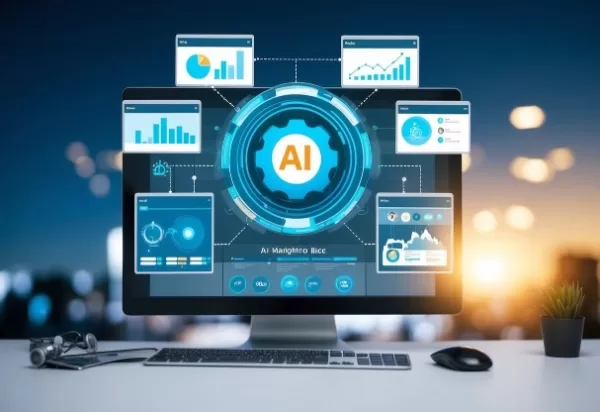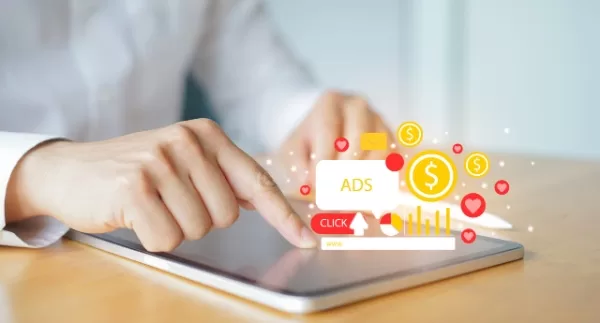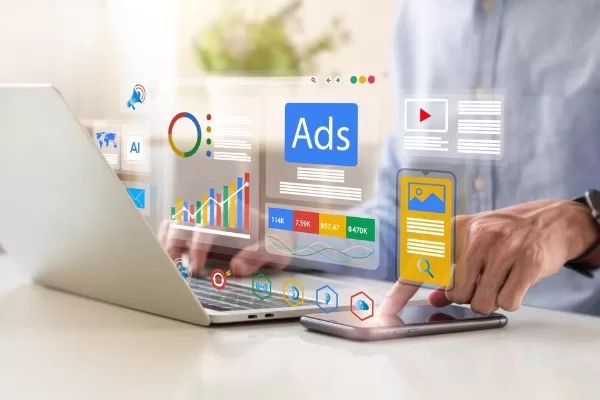Insights
AI in PPC: What Can You Expect From These Automation Tools?
On Digitals
22/08/2025
17
AI in PPC has quietly become the secret weapon behind smarter, more efficient advertising strategies. Whether you’re running a small local business or managing campaigns for a Fortune 500 company, artificial intelligence is changing the game when it comes to optimizing campaigns, reducing wasted spend, and delivering better results without the endless manual work.
How Can AI in PPC Make Your Campaigns Smarter and Faster?
AI in PPC Saves You Serious Time
One of the biggest reasons people are jumping on the AI in PPC bandwagon is the time savings. Instead of manually creating dozens of ad variations or testing headlines one by one (talk about tedious), AI can automatically generate ad copy and run multivariate tests to figure out which combinations actually work.
These platforms also use AI to optimize your entire campaign structure, making sure your budgets are flowing to the right keywords and audiences. As experts have pointed out, this level of automation lets marketers step away from the repetitive grunt work and focus on what really matters: strategy and creativity.
Can AI in PPC Actually Boost Your Conversions and ROI?
Absolutely, but it does require you to understand how it works and how to implement it into your operation. Take this example: NetLZ Consulting found that AI-powered bidding strategies helped advertisers see a 14% increase in conversion value compared to old-school manual methods. Businesses aren’t just working smarter with AI in PPC, they’re actually getting more bang for their buck with every dollar spent.

What can AI in PPC do for you?
Which AI in PPC Tools Should You Use?
Built-In AI Tools: Google, Microsoft, and Meta Have You Covered
If you’re already running ads on the major platforms, you’ve got access to some pretty sophisticated AI in PPC tools without paying extra. Google offers Performance Max and their newer AI Max for Search, both designed to automate targeting, bidding, and creative generation all in one go.
Microsoft has integrated Copilot right into their ad platform, giving marketers smarter recommendations and insights. And those Smart Bidding strategies across both Google and Microsoft? They’re using machine learning to adjust your bids in real time, helping you maximize conversions while staying within budget.
Should You Look Beyond Platform Tools?
While those platform-based AI in PPC tools are powerful, third-party solutions can give you that extra layer of customization and control you might be craving. Tools like SEMrush and Adzooma can handle AI-driven keyword research and campaign management, while MarinOne provides AI-powered bidding solutions that work across multiple platforms.
These tools are particularly helpful if you’re managing complex, multi-channel campaigns, where built-in tools can only go so far. They let you peek behind the curtain of Google or Microsoft’s AI and add your own strategic insights while still getting all the benefits of automation.
Also, built-in tools are developed by the platforms themselves, so they might not give you all the necessary tools to pull ahead of the competition. Third-party tools, however, they also let you inspect your competition, get some keyword ideas, and assist you in refining your ad copies.
How AI in PPC Changes Your Reporting Game
Remember the old days of spending hours digging through spreadsheets and dashboards just to figure out what was working? AI in PPC has pretty much put an end to that tedious nightmare.
AI-powered tools can now detect anomalies like sudden drops in clicks or unexpected spikes in cost that you might miss until it’s way too late. Predictive analytics is giving marketers a crystal ball view of what’s likely to happen next, not just a recap of what already went down, which proves to be a game changer because you can now forecast crises and make adjustments before your budget and ad performance even take a hit.
AI in PPC can track the customer journey much more accurately, providing funnel insights that show you exactly which channels, ads, or keywords are doing the heavy lifting when it comes to driving conversions, just so you can focus on those areas.
The Real Challenges of AI in PPC
AI in PPC is not a replacement for manual work
While AI in PPC is incredibly powerful, it’s not about to replace human marketers anytime soon. Sure, it can handle those repetitive tasks, crunch massive amounts of data, and adjust bids faster than any human ever could. But it can’t understand your brand voice, grasp your long-term business goals, or build genuine customer relationships. Human marketers still own the strategy, creativity, and oversight parts of the equation.
The workflow will change tremendously and things will move with a faster pace, but you will still have to refine the strategy for AI tools to have something to work with.
What is the Black Box Problem?
Here’s where things get a bit tricky. Many have pointed out that platform algorithms often work like a “black box.” You don’t always know why certain bids were made or why one ad got favored over another, one of the most common challenges of Google Ads Performance Max, for instance
Sometimes, these algorithms might prioritize the platform’s revenue goals over what’s actually best for your brand. Blindly trusting automation without understanding the reasoning behind it can leave you vulnerable to wasted spend or campaigns that completely miss the mark.

Challenges in using AI in PPC
Keeping Your AI in PPC Focused on What Matters
The good news? You can absolutely stay in the driver’s seat. Things like negative keywords can help you avoid paying for irrelevant keywords or putting limits on automated budget allocation can save some of your money.
Custom logic layers, regular campaign reviews, and crystal-clear ROI goals ensure that your AI in PPC stays aligned with your brand’s actual objectives. The key is letting AI handle the heavy data lifting while keeping your human expertise focused on strategy and intent.
How to Get Started with AI in PPC
Where Should You Begin Your AI in PPC Journey?
You don’t need to dive into the deep end right away. The best place to start is with the AI in PPC tools that are already sitting in the platforms you’re using.
Google and Microsoft both offer Smart Bidding strategies that automatically adjust your bids to maximize conversions or hit your target ROAS. HawkSEM suggests starting with these built-in features before you even think about exploring external tools. This approach lets you get comfortable with how automation actually behaves in your campaigns without adding unnecessary complexity to the mix.
Steps for Smooth AI in PPC Adoption
When it comes to adopting AI in PPC, slow and steady wins the race. Here’s what works best:
Start small. Pick a smaller campaign to test how AI impacts your performance, then analyze those results like your business depends on it (because it kind of does). Once you’re feeling confident about what you’re seeing, you can expand AI use across your larger campaigns.
Throughout this whole process, keep human oversight at the center of everything. You’ll want to review those performance dashboards regularly, make strategic adjustments when needed, and double-check that the technology is actually aligned with your business goals. Think of it as a gradual rollout, not flipping a switch overnight.

How can you implement AI in PPC?
FAQs About AI in PPC
Is AI replacing human PPC managers?
Nope, not happening. AI in PPC enhances what marketers can do, but human oversight is still absolutely essential for strategy, creativity, and making sure everything aligns with your brand.
How much does AI in PPC cost?
That really depends on your platform and campaign size. To save your budget, start with those free built-in tools before you invest in third-party solutions, just to give yourself some time to familiarize yourself with the system to know what to implement.
Is AI in PPC safe for regulated industries like legal or healthcare?
Yes, as long as you configure compliance properly and keep human review in place. However, pay close attention to your advertising rules in your country to see if they allow advertising of these services or not and what type of leeway they allow businesses.
Will AI change how I do keyword research in PPC?
You bet it will. AI in PPC is shifting the focus away from individual keywords toward intent clusters and predictive user behavior. On top of that, the process will be less labor-intensive thanks to the automation, but it also requires you to be on your toes and verify the quality and relevance of the keyword lists compiled by AI tools.
How Should You Respond to AI in PPC Advertising?
AI in PPC revolves around a set of practical tools that helps businesses run smarter, more efficient campaigns. From automating those mind-numbing repetitive tasks to uncovering predictive insights you’d never spot on your own, AI lets marketers focus on strategy and creativity while still driving stronger ROI. Embracing AI in PPC step by step will help businesses stay competitive in what’s becoming an increasingly data-driven digital marketing world.
On Digitals understands what you need and the increasing need of adaptation to the modern digital marketing landscape. Our PPC management service brings together the best of AI-powered tools with real human expertise to make sure that automation actually works in your favor while tailoring campaigns to your unique brand objectives.
Read more
